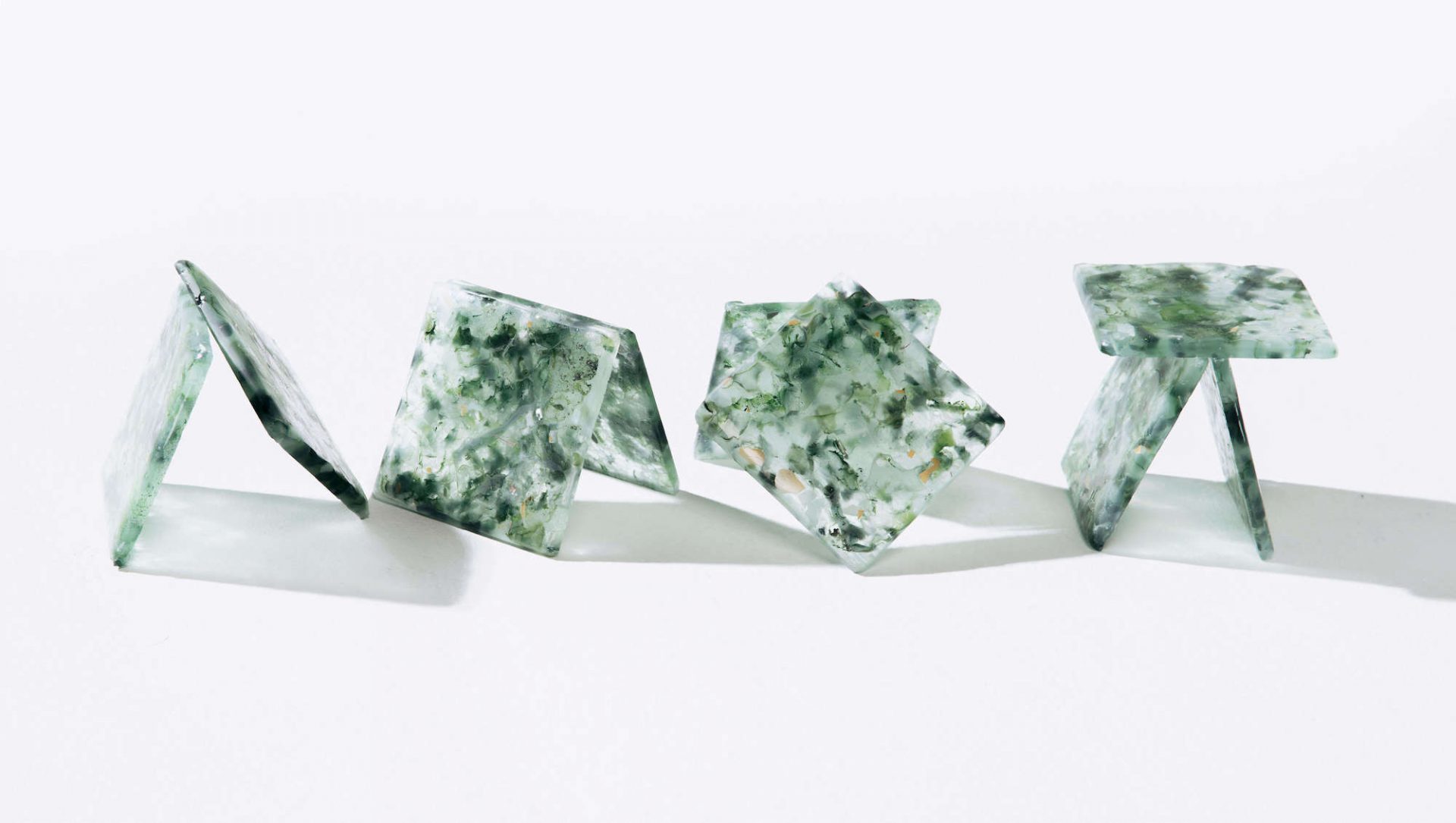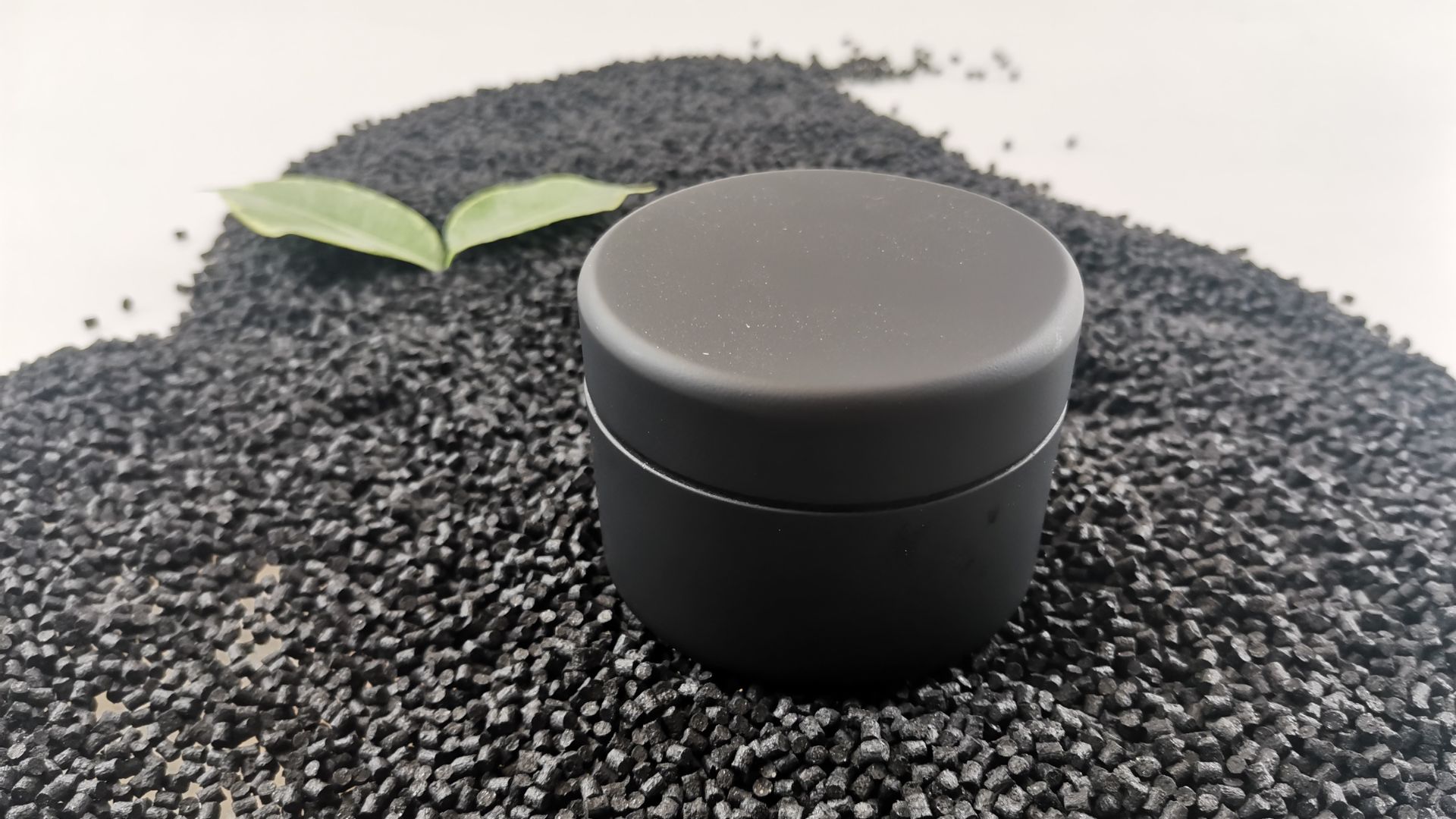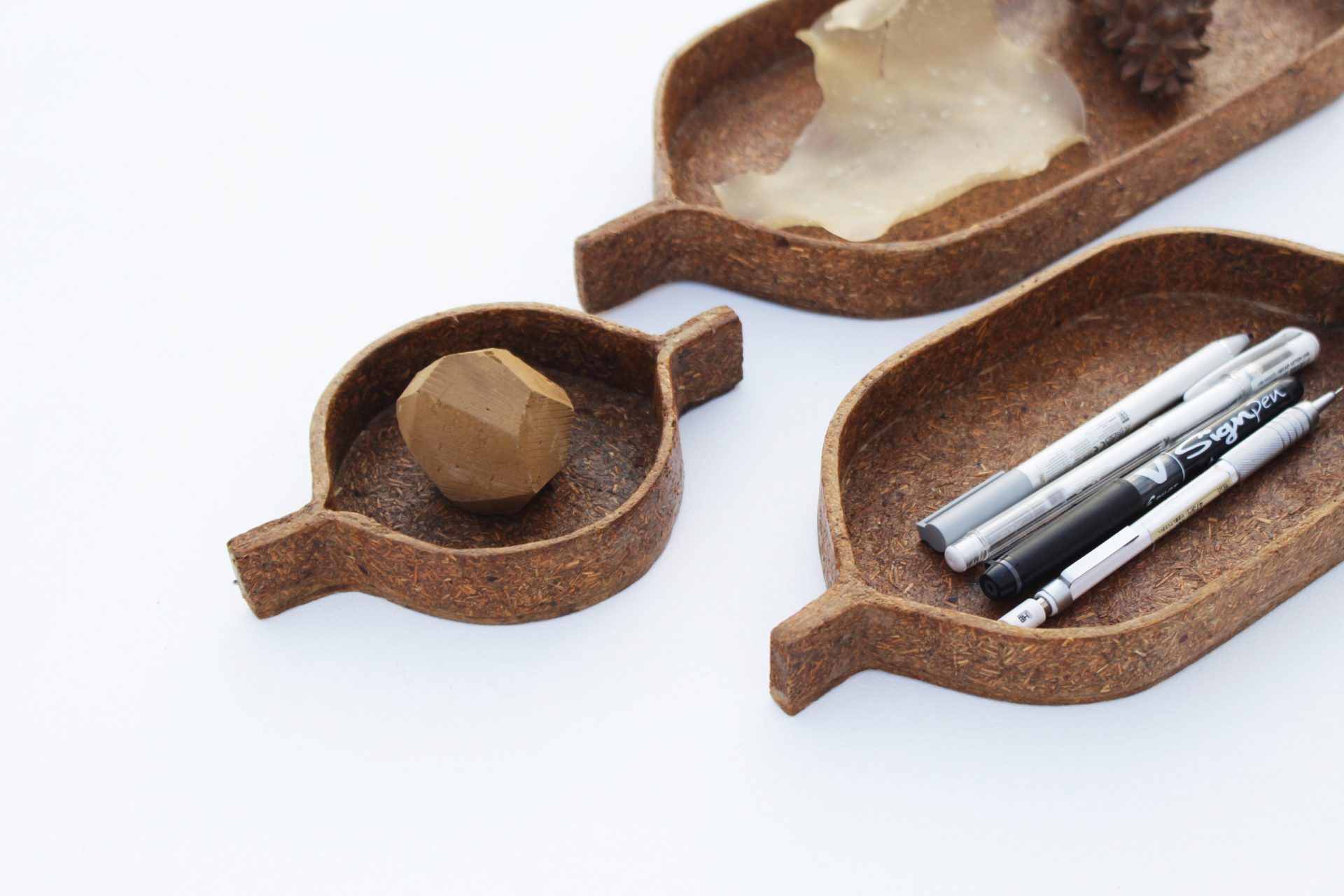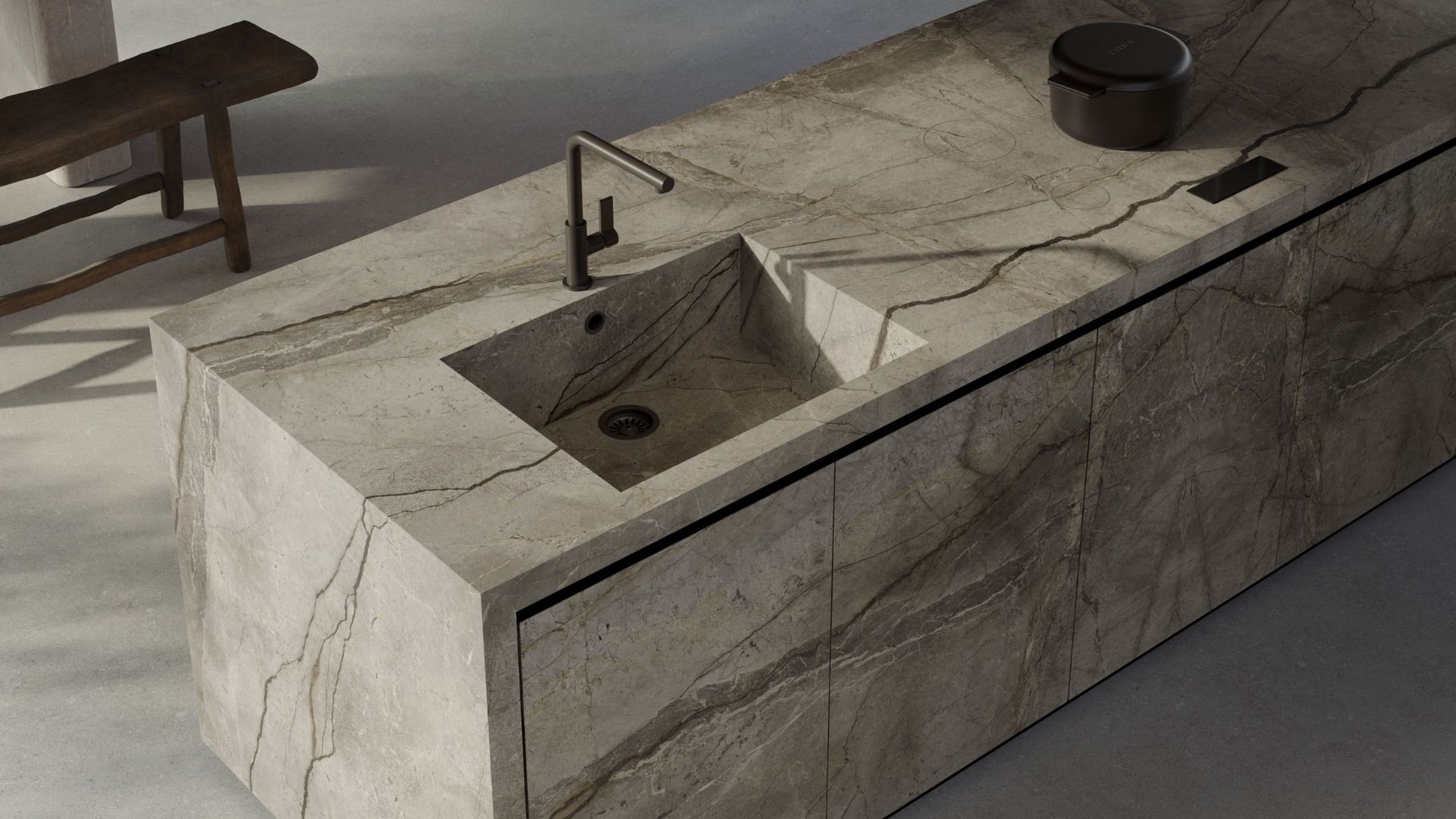An eco-conscious material unlocking sustainability on a large scale
The end-of-life of a product is a crucial factor in determining its ultimate impact on the environment. What typically happens to mass-produced, durable materials that are commonly embedded in appliances and devices? Is it possible to effectively transform such waste into a valuable resource?
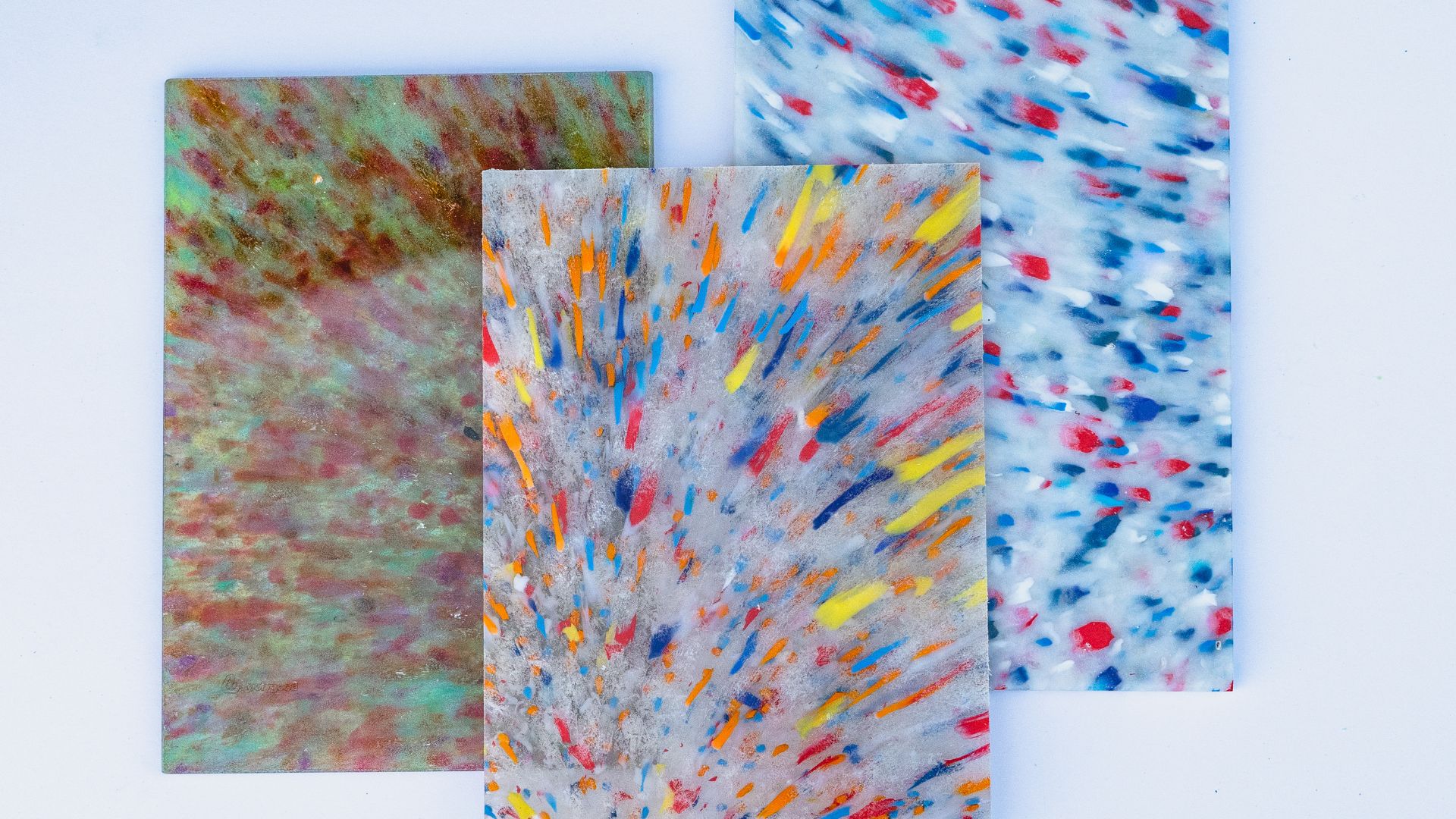
Polygood by The Good Plastic Company is a distinctive surface material made from 100% recycled and 100% recyclable plastic. It aims to bridge the gap between effective recycling practices and successful business models. Polygood panels are produced from a wide range of plastic waste sources, including refrigerators, electronics, single-use cutlery, and industrial consumables.
The panels are made from polystyrene plastic, which has exceptional technical and mechanical properties, including lightweight construction, thermal and electrical insulation, resistance to wear and tear, and ease of handling. Best of all, it can be recycled many times over, making it an even more sustainable choice.
Gallery
Open full width
Open full width
Polygood is a testament to the transformative power of recycled plastic waste materials. By using discarded plastic as raw materials, it is possible to create stunning and functional new products that promote sustainability and environmental preservation.
Polygood: description & story
Born with the intent of becoming an international manufacturer, The Good Plastic Company has developed and is patenting specific equipment to recycle plastic collected from different waste streams, thanks to a huge variety of data collected about crucial processing parameters such as temperature exposure, pressure, specific melting points, melt flow indexes and time.
Thanks to sorting, machining, and fine-tuned hot-pressing techniques, the proprietary technology allows for the production of recycled panels of the highest quality, whose performances are supported by laboratory test results and certification fully compliant with international standards.

Having already partnered with many brands such as Nike, Adidas, McDonald’s, Karl Lagerfeld, Foot Locker, in innovative shop redesign projects, and interiors, the material is also seen as a clear, visible commitment to the circular economy, thanks to its backstory and attractive aesthetic.
Applications and use cases
Given its panel-based production, this material is particularly well-suited for integration into modern, sophisticated decor in retail, hospitality, and office spaces. It can also serve as a versatile surface material for tables, shelves, wall coverings, and even exterior cladding.
Due to the intrinsic durability and resistance, Polygood panels can also be used for designing functional elements such as washbasins, shower claddings, or even lamps to be implemented not only in the retail but also in the private and hospitality sectors. Moreover, the material can also be used as a durable, structural and original component in fashion accessories with strong visual effects.

Pros, when and why
Recycling centres around the world are processing vast quantities of plastic every month, and new circular business models are emerging, driven by regulatory requirements and market demand.
Technologies such as those used by The Good Plastic Company enable new applications for this valuable resource, harnessing its creative potential. Interestingly, the panels themselves also contain other post-industrial Polygood wastes from machine drilling, which are eventually transformed into new panels, creating marble-like, dynamic motifs. It is safe to say that this transformation, within a sustainable approach, represents a significant challenge but also an opportunity for all companies in the value chain.
Where to get it, dimensions and sizes
Polygood panels are currently available in dimensions of 2800 mm x 1400 mm and a thickness of 12 to 19 mm. Industrialization of the process allows for a production capability of an estimated average of 50,000 square meters per year, planned to be further scaled up. Production plants and offices are located across Europe, in the Netherlands and Ukraine, with official distributors in France, Spain, and the UK.

The standard Polygood color range consists of 12 patterns suitable for both classic and modern interior solutions, with a bespoke selection of unique and even translucent or transparent colors.
Not only does the company produce high-quality, sustainable material, but they are also committed to ensuring that their products have a minimal impact on the environment throughout their entire lifecycle. To achieve this, they offer a take-back and remanufacturing program for disassembled parts and leftovers made from Polygood at the end of their useful life and recycle them, transforming them back into the beautiful material they once were.
By implementing these practices, the company is setting a new standard for eco-driven design and demonstrating their dedication to sustainability

Takeaway
As businesses need a tangible way to demonstrate shared values towards their customers and enhance brand affinity, we believe that incorporating recycled materials into retail and commercial interior implementations is a highly effective way for brands to make a powerful impression and statement about their commitment towards sustainability.
Being able to substitute virgin plastic whenever possible, and exploiting all the visual and performance potential of this material definitely represents a winning strategy for eco-driven design.








